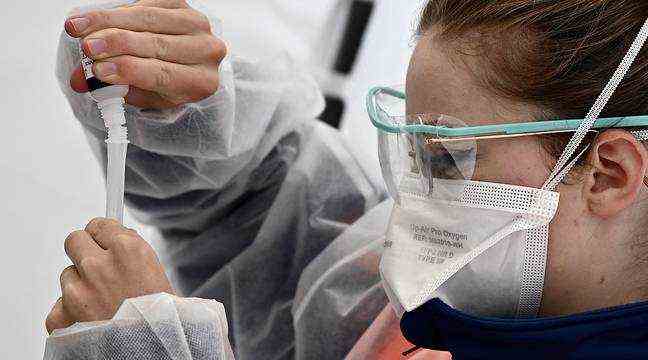When there’s more, there’s more. The Emergency Committee of the World Health Organization (WHO) warned this Thursday against the “high probability” of the emergence of new variants of the coronavirus, “possibly more dangerous”.
“The pandemic is far from over,” noted in a statement these experts, meeting Wednesday, who advise the director general of the WHO, adding: “there is a high probability of the emergence and dissemination of new worrying variants possibly more dangerous and even more difficult to control ”, than those already listed by the UN agency.
So far, 4 disturbing variants
“Recent trends are worrying. 18 months after the declaration of an international public health emergency, we continue to run after the virus and the virus continues to run after us ”, underlined the president of the committee, the French Didier Houssin, during a press briefing.
For the moment, the WHO lists 4 so-called disturbing variants: Alpha, Beta, Gamma and Delta. The Delta variant, first listed in India, is spreading at very high speed across the world causing a strong resurgence of the pandemic. Much more contagious than the others, it is a little more resistant to vaccines even if they continue to protect well against the most serious cases of Covid-19 and deaths.
Professor Houssin stressed that the committee made two main recommendations: to defend equitable access to vaccines and not to take initiatives with little scientific justification such as a third dose of anti-Covid vaccine, proposed in particular by the Pfizer / BioNTech group.
We must “continue to tirelessly defend equitable access to vaccines and equitable distribution of vaccines in the world by encouraging the sharing of doses, local production, the liberation of intellectual property rights, the transfer of technology, the rise in importance of production capacities and of course the necessary funding to implement all these activities ”, enumerated Professor Houssin, former Director General of Health in France.
Vaccine inequality
Vaccine inequality has been denounced for months by the WHO, NGOs and the countries which are victims of it. When the United States or the EU aim to vaccinate the vast majority of their population in the coming weeks, the most disadvantaged countries barely reach 1% of their population protected.
But Didier Houssin also believes that it is “essential not to be sidetracked by initiatives that could worsen the inequity in access to vaccines”, by recommending a “booster dose” or 3rd dose, “while today ‘yes the scientific data do not really justify it, if we consider the situation at the global level ”.

